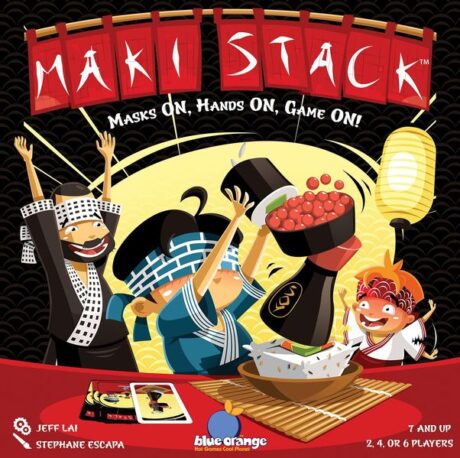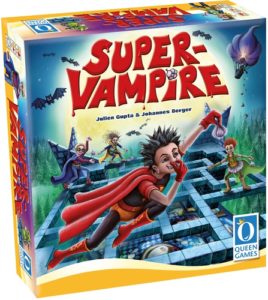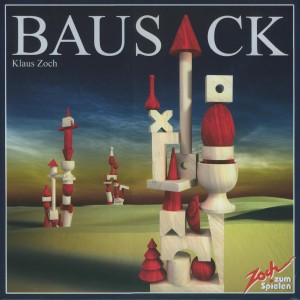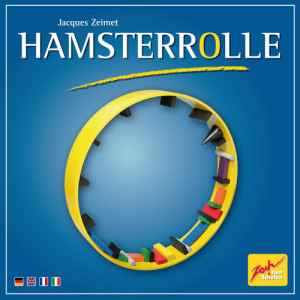- Learning time
- 5 minutes
- First play time
- 20 minutes
Maki Stack
Designed by: Jeff Lai
In Maki Stack, two teams play competitive sushi-stacking, because – why not?
The game comes with two sets of wooden sushi pieces: the soy sauce bottle, the makizushi, the gunkan maki… there are five in total for each team, plus a sushi mat.
Play couldn’t be much simpler: at the start of each round, a card is flipped showing a particular stacking order of the pieces that each team has to copy, with the first one to finish winning the round and claiming the card as a point. But there’s a catch – a considerable catch – to how the pieces get built. A card with a yellow back means team-mates must collaborate to build using one finger each to create the stack, acting like chopsticks (you can play an advanced rule where you use your pinky instead). A card with a red back means before the card is flipped one team member puts on a blindfold (supplied with the game) and must build the stack solo, directed and guided by their teammates.
The first team to claim six cards wins!
The guru's verdict
-
Take That!
Take That!
None, although there is definitely a sense of mounting pressure - and potential for frustration - in a race of fiddliness where you keep dropping things!
-
Fidget Factor!
Fidget Factor!
There's zero down-time at all.
-
Brain Burn!
Brain Burn!
No brain-burning here.
-
Again Again!
Again Again!
Well, how much do you enjoy stacking wooden sushi pieces using only one finger with a team-mate who may or may not be able to synchronise with you? There are enough cards that you can't predict what anything will be, but the experience itself doesn't really change - it's manic and high-pressure lunacy.









Sam says
Though my go-to stacking game is Bausack, which I've played a billion times over the years, what Maki Stack has over it in spades is the pace of the game: it plays at a manic rate and just when you think it's all too much, the game is over; it only takes about ten minutes to complete. The pieces are nice and the fact you play in teams is also really appealing, as long as nobody gets too hung up on winning: it's one of those games where the result is almost irrelevant - just good, silly, bizarre fun. A family game - too intense for me to want to play often, but a great laugh when it does hit the table.